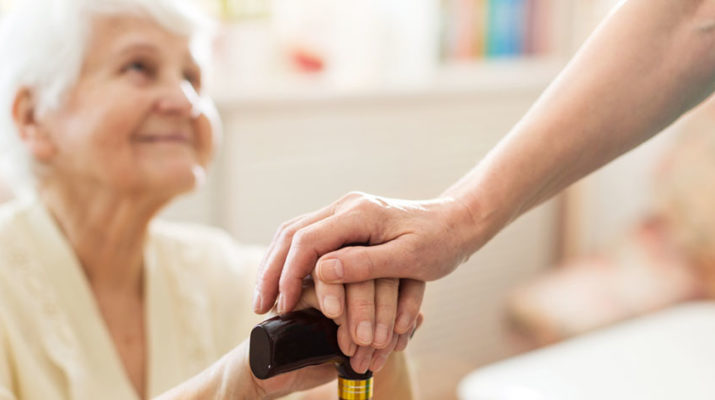From St. Ann’s Community to Loretto in Syracuse, large nursing homes in Upstate New York impose restrictions as a way to contain the spread of COVID-19
By Ernst Lamothe Jr.
Many nursing homes and assisted living facilities in Upstate New York have been on the forefront of battling the coronavirus and making sure their residents stay safe while also making sure the lines of communications remain strong with their loved ones.
Older adults and people who have severe underlying chronic medical conditions such as heart or lung disease or diabetes are at a higher risk for developing serious complications from COVID-19.
“We have issued a temporary visitor restriction to all our senior care communities,” said Julie Sheedy, chief marketing and engagement officer for Loretto in Syracuse, a comprehensive continuing healthcare organization that provides a variety of services for older adults. “For us being a nursing home facility, we have always focused on taking the most precautions in any situation. We are always on high alert especially in this time because it is flu season and we had strict protocols in place even before the coronavirus.”
Loretto is the ninth largest employer in Onondaga County and employs about 2,500 people. It serves nearly 10,000 individual annually.
“The only exception we’re making when it comes to visitors is for residents who are at the end of life where we are making special arrangements,” said Sheedy. “We have stopped any community outings as well as entertainers or events coming into our facilities. We know that we care for one of the most vulnerable populations and we’re meeting daily to assess and reassess any of our protocols.”
St. Ann’s Community, which is the largest senior facility provider in the Rochester area — and the seventh largest nonprofit senior living provider in New York state — has assembled a core team of physicians, nurses and care providers to monitor the virus’ spread and obtain updated guidance from the Department of Health and the Centers for Disease Control (CDC). The medical team has limited all visitation that are not medical related.
Jennifer Aiezza, marketing manager for St. Ann, said the organization releases regular videos, which cover a wide range of topics from visitation restriction, preparedness, resident activities and programs. In addition, it has set up an email address — covidquestions@mystanns.com — for families to also send questions.
“Although large-scale events have been suspended, our staff are providing programs for small groups fewer than five residents and individuals to meet their interests and needs,” said Aiezza. “This allows residents to stay on their floors and in their households, socializing with those they ordinarily interact with. Innovation and spontaneity has already taken place; from impromptu birthday celebrations to dance parties in the dining room, we are working together to continue normalcy for our residents,” said Aiezza.
St. Ann’s has also implemented a buddy program, which pairs staff with residents for daily visits. During these visits, team members will check-in on residents to talk, listen, and help connect them with their families via video-chat or another way as determined by family preferences. The team members are volunteers from across multiple functions of St. Ann’s.
“With visitation being so limited, we have created opportunities for social interaction and engagement,” said Triciajean Jones, St. Ann’s director of life enrichment. “Every resident has been paired with a staff member who will visit daily and help keep in touch with family through video chat or a simple phone call. It’s a friendly visit for both residents and staff.”
“So many of our residents enjoy weekly and daily visits from their loved ones, and now, due to restricted visitation, we will do everything we can to keep families connected,” added Aiezza.
Based on guidance from the CDC and other health agencies regarding COVID-19, and an abundance of caution, Buffalo-based Elderwood, which operates several senior facilities throughout New York state, has issued temporary visitor restrictions at all of its senior care communities. No unnecessary visitors will be allowed into these facilities. Those individuals that must enter, including Elderwood staff, must complete a health screening prior to moving throughout the facility.
Trying times
Physician David Gifford, chief medical officer for the American Health Care Association and National Center for Assisted Living, understands families panicking because they are not able to visit but he believes these are trying times.
“This virus is acting differently in the elderly population, those who are 80 years old and older, especially those who are living in nursing homes and assisted living. The disease for them is very dire,” said Gifford. “We are making recommendations, governors nationwide are making recommendations and the CDC is making recommendations to limit individuals coming into buildings. We know this is a difficult thing to ask but the risk of this virus being spread is very serious.”

